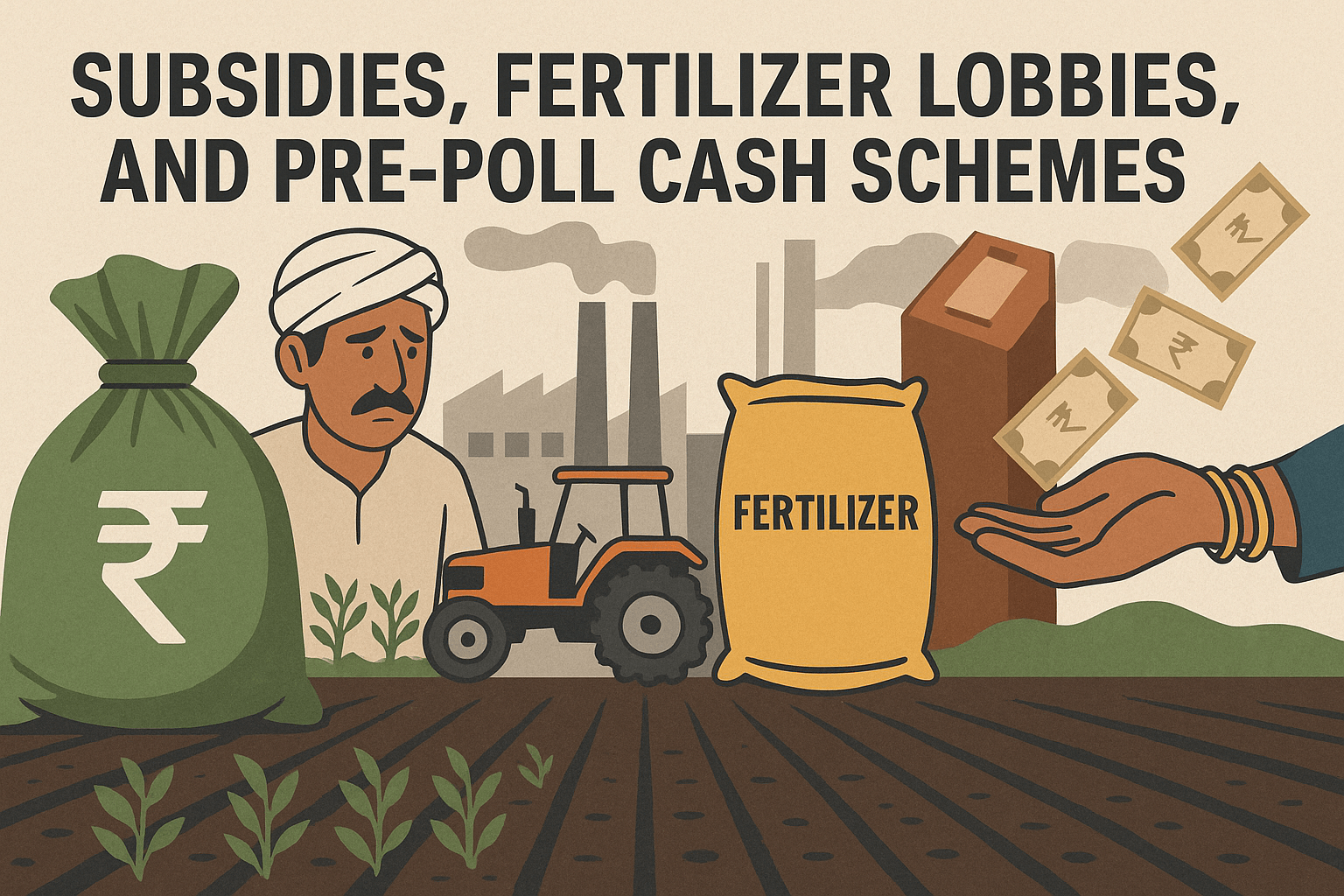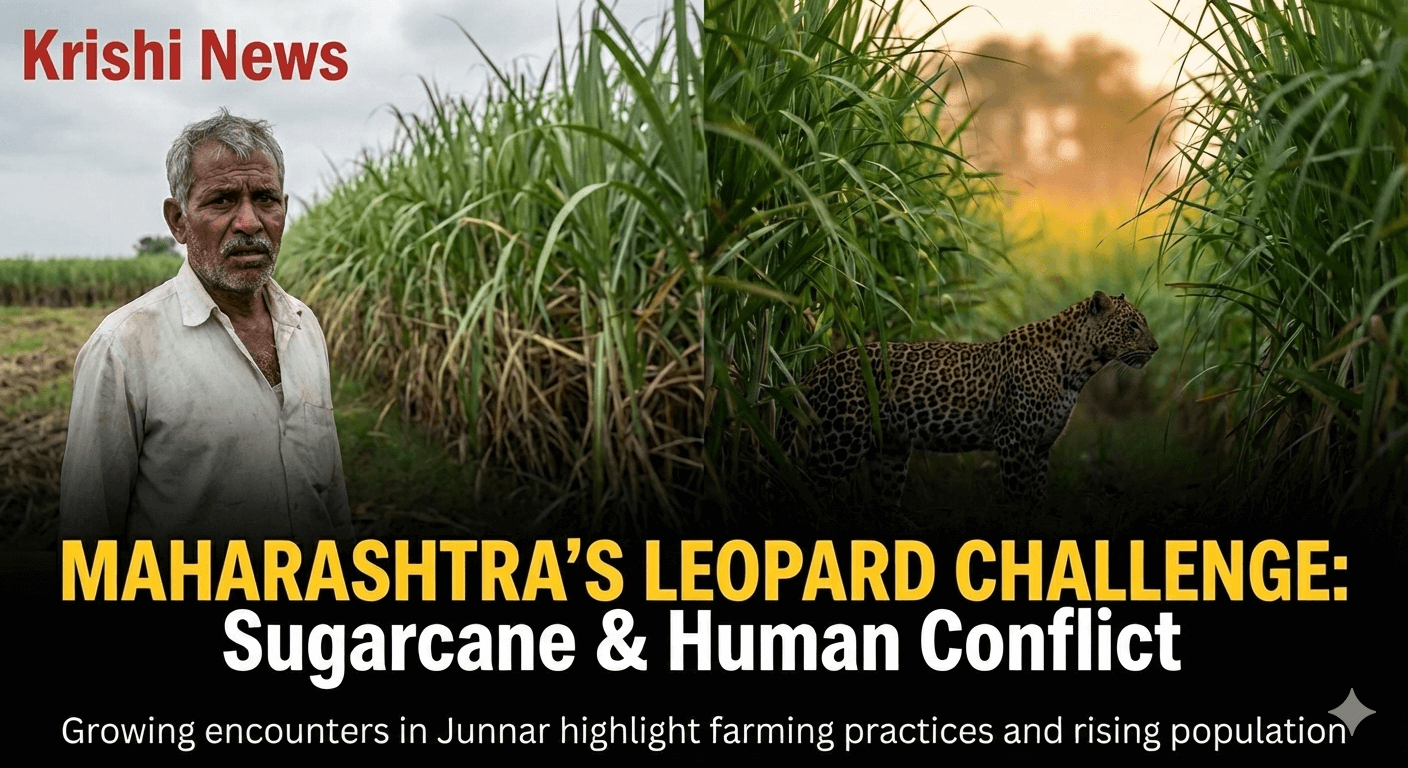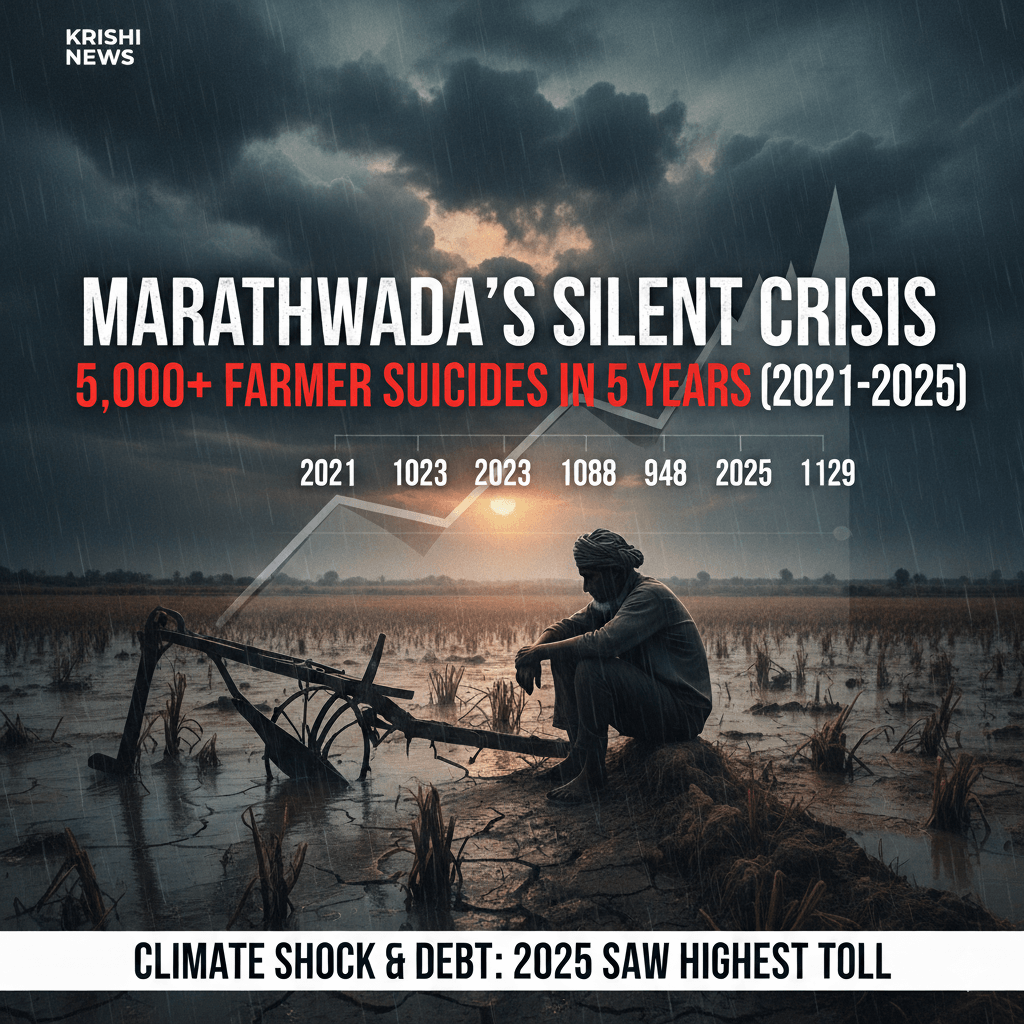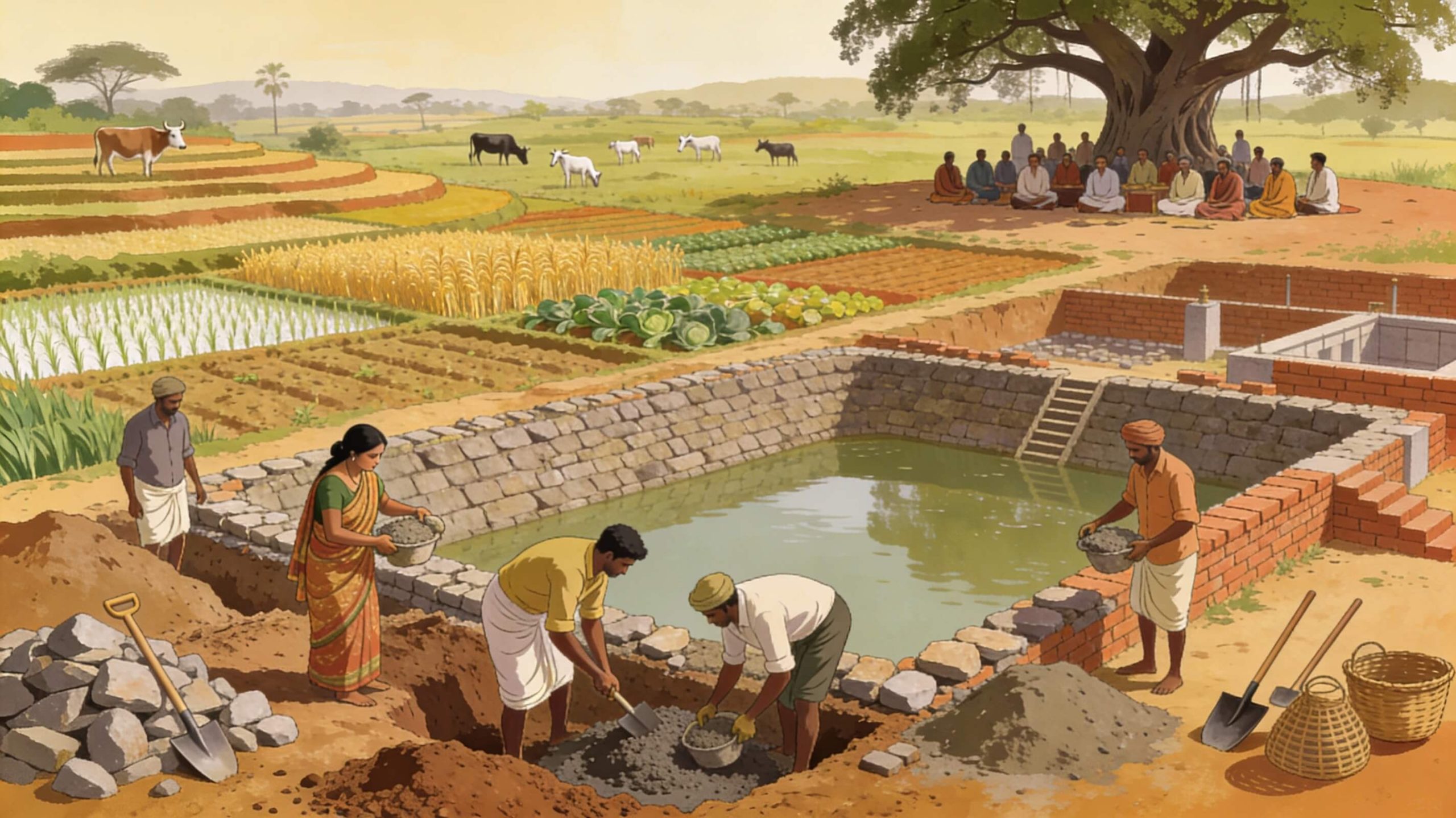India’s development model today rests on a fragile but politically convenient formula: chemicals for farmers, cash for voters.
It is a system designed not to solve problems, but to manage them till the next election cycle.
At the heart of this lies a political economy where fertilizer lobbies, agricultural subsidies, and now large-scale pre-election cash transfer schemes like Ladli/Ladki Behna define state policy far more than ecological needs or long-term rural prosperity. The result is a food system that is financially expensive, ecologically destructive, and politically rewarding for those in power.
A Food System Held Hostage by Subsidy Politics
India spends enormous public money on fertilizer subsidies, sometimes over ₹1.75 lakh crore a year, yet the soil is deteriorating, water tables are collapsing, and farmers remain trapped in debt cycles.
Why?
Because subsidies are not just economic tools; they are political instruments.
A bag of urea is Visible, Immediate, and Electorally Very Useful.
Governments know that sustainable agriculture, soil health, biodiversity, or long-term climate resilience cannot be packaged into a sack and handed out at a political rally.
Subsidies can.
So the system and government stays.
The Fertilizer Lobby: The Silent Architect of Policy
Behind the scenes sits the fertilizer industry, companies that profit from a chemical-intensive agricultural model. Their influence is institutional, sustained, and largely unquestioned.
Any significant shift toward Sustainable Agriculture threatens:
- their market size,
- their political relationships,
- and the entire subsidy architecture that guarantees demand.
Policies like the Seeds Bill or the constant push for certified, corporate seeds reflect this influence.
Indigenous seeds, farmer-led seed systems, and community seed banks pose no business threat because they function outside corporate supply chains.
But they also receive almost no state support.
Vote-Bank Politics: Cash Transfers Are Becoming “Democracy’s ATM”
Across India, an equally troubling trend has emerged: pre-election cash distribution schemes, the most prominent being the Ladli/Ladki Behna Yojanas and variants across multiple states.
These schemes provide women with ₹1,000–₹1,500 a month, often activated or expanded months before elections.
The intention, at least politically, is clear:
short-term relief in exchange for long-term political loyalty.
But ask a simple question:
Why does a woman need pre-election cash from the state in the first place?
Because the state never invested in:
- agriculture,
- rural livelihoods,
- decentralized food systems,
- agro-processing,
- local markets,
- or women-led farm enterprises.
If agriculture were functional and remunerative, families would have incomes.
If incomes existed, cash transfers would not be needed as political crutches.
These schemes are not empowerment, they are compensation for the state’s own failure to build resilient rural economies.
The Real Cost of Election-Time Freebies
When thousands of crores go into last-minute cash schemes instead of agroecology or rural infrastructure, the consequences are severe:
- Women get money for a month; the soil loses fertility for decades.
- Politicians secure votes; farmers lose livelihoods.
- Lobbies thrive; rural communities collapse.
No nation can build real development on temporary cash infusions.
Subsidies + Cash Transfers = A Perfect Political Trap
Here is the uncomfortable truth:
Fertilizer subsidies keep farmers dependent.
Cash transfers keep voters dependent.
Together, they keep politics unaccountable.
This is the politics of development, a system engineered to maintain short-term control rather than long-term prosperity.
Meanwhile, the development of politics, where an informed, empowered citizenry demands structural change remains frozen.
Sustainable agriculture, decentralized food systems, and community-driven development threaten both subsidy politics and cash-transfer politics because they make rural communities self-reliant.
Self-reliant communities do not need pre-election gifts. They do not need urea handouts. They do not need political patrons.
That is precisely why these transformative pathways remain neglected.
A Better Alternative: Invest in Agriculture, Not in Election Cycles
If even a portion of the money spent on:
- Massive fertilizer subsidies,
- Poorly targeted cash schemes,
- and pre-election doles
were invested in:
- sustainable agriculture
- farmer cooperatives,
- village-level processing units,
- indigenous seeds,
- soil health,
- women-led farm enterprises,
- and local food markets,
India would not need to bribe its own people with survival allowances every five years.
A resilient agricultural system is the strongest social security system a country can build.
India Must Choose: Politics That Controls Development, or Development That Reforms Politics
Today, development is shaped by lobbies and election compulsions.
But a healthier politics transparent, accountable, ecological can emerge only when development itself becomes democratic.
The choice before India is stark:
Keep feeding subsidies and cash schemes to maintain electoral control,
or invest in agroecology and rural livelihoods so people no longer depend on such schemes.
One path preserves political power. The other preserves the nation and the very people of India.





